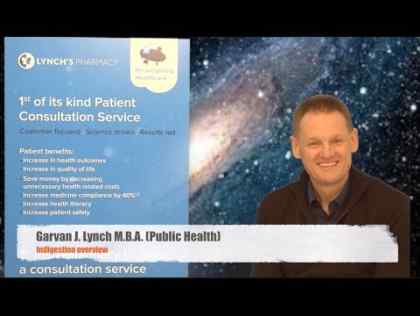-
Early fullness during a meal. You haven't eaten much of your meal, but you already feel full and may not be able to finish eating.
-
Uncomfortable fullness after a meal. Fullness lasts longer than it should.
-
Pain in the upper abdomen. You feel a mild to severe pain in the area between the bottom of your breastbone (sternum) and your navel.
-
Burning in the upper abdomen. You feel an uncomfortable heat or burning sensation between the bottom of the breastbone and navel.
Less frequent symptoms may come along with indigestion, including:
-
Nausea. You feel like you are about to vomit.
-
Bloating. Your stomach feels swollen, tight and uncomfortable.
Sometimes people with indigestion also experience heartburn, but heartburn and indigestion are two separate conditions. Heartburn is a pain or burning feeling in the center of your chest that may radiate into your neck or back after eating.
Causes
There are many possible causes of indigestion. Some are related to lifestyle and what you're eating and drinking. Indigestion can also be caused by other digestive conditions.
Common causes include:
When a cause for indigestion can't be found after a thorough evaluation, a person may have functional dyspepsia. Functional dyspepsia is a type of indigestion that may impair the stomach's ability to accept and digest food and then pass that food to the small intestine.
Complications
Although indigestion doesn't usually have serious complications, it can affect your quality of life by making you feel uncomfortable and causing you to eat less. When indigestion is caused by an underlying condition, that condition could come with complications of its own.
Diagnosis
To investigate your signs and symptoms of indigestion, your doctor will likely review your medical history and perform a physical exam. To rule out other conditions that can cause indigestion, the doctor might order tests, including:
-
X rays of your esophagus, stomach and small intestine. Also called an upper gastrointestinal and small bowel series, this exam uses X-rays to make images of the inside of your body.
-
Blood, breath or stool tests. These help determine whether peptic ulcer disease is causing symptoms.
-
Upper gastrointestinal endoscopy. After you've been sedated, a long, thin tube with an attached camera is placed in your mouth, down your esophagus and into your stomach. The doctor looks for abnormalities and may remove some tissue (biopsy) for later examination.
-
Abdominal ultrasound. Using high-frequency sound waves, an ultrasound makes images that show movement, structure and blood flow. A gel is applied to your abdomen, and then a hand-held device that emits sound waves is pressed against your skin.
-
Abdominal CT scan. A dye might be injected into your veins in order to get more-detailed pictures of inside your body. Then, you lie on a table and the CT scanner rotates around you, taking X-ray pictures as it moves.
References:
https://www.nlm.nih.gov/medlineplus/ency/article/003260.htm
http://www.nhs.uk/conditions/indigestion/Pages/Introduction.aspx
http://www.emedicinehealth.com/indigestion/article_em.htm
http://www.healthline.com/symptom/indigestion
http://patient.info/health/dyspepsia-indigestion
http://www.niddk.nih.gov/health-information/health-topics/digestive-diseases/indigestion/Pages/facts.aspx





